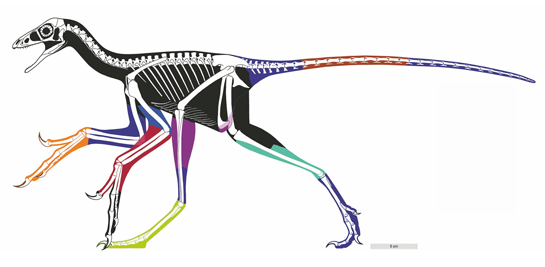New Study Demonstrates that Birds can “Smell a Rat”
It seems that common everyday creatures can still cause a surprise amongst scientists when research provides an insight into behaviour and conditioning. One such example is a study of Blue Tits (Cyanistes caeruleus), that has been reported in the latest edition of “Functional Ecology”.
The researched focus on whether or not these common garden birds used their sense of smell to detect danger and alter their behaviour accordingly. Many animal species detect and avoid predators and other dangers by using their sense of smell. This sense has largely been ignored in the study of birds, since it was thought that this particular sense was not as important to them as other senses such as sight. This new research was carried out amongst a population of wild Blue Tits in nest boxes in Miraflores de la Sierra in the Sierra de Guadarrama mountains, Madrid province, Spain.
This study has revealed that birds are not only capable of detecting potential predators through chemical signals, but they also alter their behaviour depending on the perceived level of threat. This is an effective survival strategy to adopt as reported by Luisa Amo de Paz, the study’s lead author who was working as a biologist at the Spanish National Research Council’s Natural History Museum while the study was carried out.
This research, provides the first ever evidence to show that birds are able to distinguish their predators using chemical signals. According to the research team this new work: “opens up a new and promising area of research in understanding numerous aspects of bird behaviour, which have been ignored until now.”
The sharpness of the sense of smell among certain birds, especially those that raise their young in holes in trees, such as some of the Tit species, is essential for determining whether their major predators, weasels or martens, have got into their nests or are approaching, particularly because of the limited visibility inside their nests. These birds are active during the day (diurnal) and therefore may have difficulty seeing any potential dangers when peering into the dark holes of their nesting chambers.
The researchers placed the scent of mustelids (ferrets) inside the nest boxes when the chicks were eight days old, and “the parents took longer to enter the boxes to feed their chicks, and they approached the boxes more often without going inside,” commented Ms. Amo de Paz.
Thanks to the images captured by a video camera located several metres from the nest box, the scientists were able to work out the number of times the chicks were fed, and deduced that the birds did not feed their chicks on fewer occasions, although “they spent less time inside the nest while feeding their babies,” according to the biologist. By spending less time in the nest box, the parents lessened the risk of predator attack while still feeding their chicks.
The biologists added the scent of Quail (another, non-threatening bird) in other nest boxes in order to monitor the effect of a new smell on the Blue Tits’ behaviour, and water in others to monitor the effect caused by moisture. This demonstrated that when the birds detected an unknown smell, such as that of the Quails, they did not wait such a long time before entering their nests, and did not reduce the amount of time spent feeding their chicks.
The evidence presented indicates that these small birds are able to detect potential predators and can alter their behaviour accordingly, in essence if they “smell a rat” or indeed any other predatory mammal, they take precautions.
When the chicks were 13 days old, the scientists topped up the corresponding scent for each nest box, and measured the results again. Ms. Amo de Paz said this was to “see whether the ferret scent had an effect on the chicks’ physical condition”, given that their parents had spent less time inside the nest. The conclusions show that the chicks’ growth was not affected during the time they were exposed to the supposed predator. The research team concluded that birds such as tree nesting Blue Tits are able to detect the chemical signals of predators and use these to weigh up the risk of predator attack. In this way their behaviour is modified based on the evidence presented to them from their sense of smell.
This article as been adapted from material provided by Plataforma SINC and Science Daily article published on 30th April 2008 “Birds Can Detect Predators Using Smell”.
Blue Tits are common throughout the British Isles and are resident year round, many studies and surveys have been carried out on these types of birds, although they can be observed from virtually every kitchen window in the country and are a common sight in British gardens their complex behaviour should not be underestimated. Blue Tits for example are capable of producing sophisticated songs, specific sounds being related to the mating season, warding off rivals, proclaiming territory and providing an alarm warning of danger. Although prolific breeders, Blue Tit numbers were severely hit by the extensive flooding that occurred in the UK last Summer. It has been estimated that ten million chicks perished as a result of this weather, either directly as a result of the floods or indirectly due to the lack of available prey.
Research into the sense of smell of birds which are believed to be closely related to Theropod dinosaurs is of interest to palaeontologists as a great deal of speculation has taken place as to the capabilities of dinosaur senses. Thanks to casts of brain cases, and CAT scans, a lot more data on how dinosaur’s brains worked has been gathered over recent years.
By tracing pathways of nerves, scientists can estimate the relative importance of senses like smell and sight to certain dinosaurs. The olfactory bulbs (the areas of the brain associated with processing smell data); of Tyrannosaurus rex for example, were quite large and well developed. This indicates that a sense of smell was important to this creature. Scavengers such as vultures also have a large portion of their brains dedicated to their sense of smell.
Is this evidence indicating that T. rex was not a hunter but a scavenger like a hyena or vulture is today? Unfortunately, being unable to observe a Tyrannosaurus rex actually hunting prevents scientists from testing this theory. All they can say with any certainly is that tyrannosaurs like T. rex probably had a good sense of smell and this sense was important to them.
T. rex Had an Excellent Sense of Smell

A close-up view of the Nanmu Studio Alpha T. rex in the brown colouration. A dinosaur with an excellent sense of smell.
Picture credit: Everything Dinosaur
View dinosaur models such as Tyrannosaurus rex for sale at Everything Dinosaur: Dinosaur and Prehistoric Animal Models.






Leave A Comment